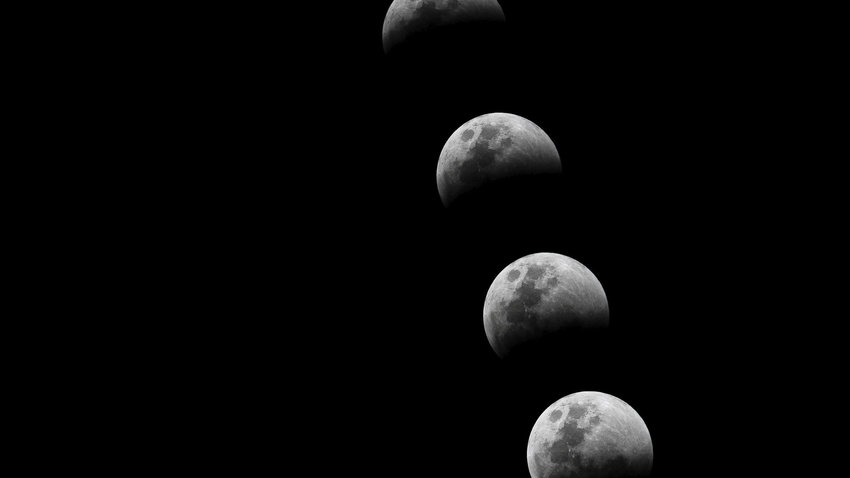
THE LUNAR ECLIPSE STILL SPEAKS
What a pre-dawn moment of glory! Did you remember to check out the total lunar eclipse Wednesday morning before sunrise? When I stepped out under the stars, the heavens were literally ablaze in white pinpoint. With no ambient light from the eclipsing moon and not a cloud above, it truly was a spectacular vista high overhead. And as the moon slowly bore more and more of earth’s shadow (or, as the earth crossed more and more into the blazing light of the unrisen sun), the moon’s white turned to a dull orange, not unlike a frosted incandescent bulb with a fading element inside of it. Some see a coppery red during a lunar eclipse (thus the expression “blood moon”), but it certainly appeared orange to me. The reason for any color at all is (as www.space.com explains it) because of the fiery ring that encircles the earth when it fully blocks the sun. Apparently, if we were standing on the moon during this eclipse, the view of earth would be even more specular than what we saw of the moon—our home planet pitch black except for that blazing ring around its edge. When I came back in from the breathtaking display, my mind was drawn to a collage of ancient exclamations. “When I consider your heavens, the work of your fingers, the moon and the stars, which you have set in place, what is mankind that you are mindful of them, human beings that you care for them? . . . The heavens declare the glory of God; the skies proclaim the work of his hands. Day after day they pour forth speech; night after night they reveal knowledge. They have no speech . . . yet their voice goes out . . . . [For] by the word of the LORD the heavens were made, their starry host by the breath of his mouth” (Psalms 8:3,4; 19:1-4; 33:6). How truly puny and insignificant the human creation is when set against a trillion galaxies and a septillion (a 1 followed by 24 zeroes) stars! And yet—wonder of wonders—the Creator of them all stripped aside His majesty, descended into the womb of an earthling, and from there entered our consciousness, “God with us.” Who can comprehend such mystery? Ian Pitt-Watson was right: “Some things are loved because they are worthy; some things are worthy because they are loved.” No wonder the night sky summons our adoration. For in the path of moon and stars, we trace His love.